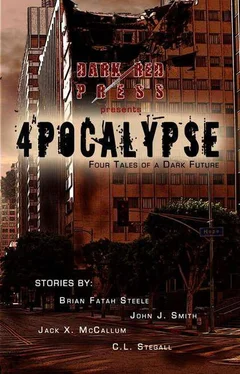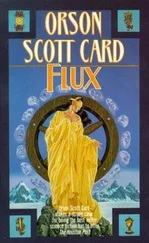“I gave him the Nanomere9 serum. Just like you got. From Dr. Thyssen.” The woman glanced around, but no one other than her and us prisoners were in the room. “Sorry about that.” She gave me a sincere look of regret and then turned to walk back to the sterile workbench.
“What will it do to us?” I asked. I suspected that I already had a good notion of what it was supposed to do. Just not what it would actually do.
“You really want to know?” the nurse asked, turning to face me. Kel had not moved since I’d awakened and I was growing concerned. The nurse noticed my glance and nodded in understanding. “His body is not taking to the serum as well as yours.” She shrugged. “Not sure why. Some subjects do better than others. But, in the end, they all get better. At least, they have since Nanomere7. That’s when he got it right.”
“Thyssen, you mean?” She nodded at me and then sat down on the metal stool.
“I know what you know. My name is Karen Hollister. I’m a doctor specializing in cryogenics.”
“Cryogenics?” I could not hide my surprise. What would cryogenics have to do with the serum?
“Yes,” Hollister said. “I maintain the CryoLab facility. It was the first lab when you came off of the elevator. That’s where we keep them.”
“Them, who?”
“The President. The First Lady. The Secretary of State. Two brilliant scientists you probably never even heard of. You must have been a baby when it happened,” she said, noting my apparent age.
“I was six. Why the hell do you have those people frozen in there?”
“Thyssen thinks he can safely restore them to even better health than they had before. I’m doubtful. But, he has done wonders in the area of life extension. Perhaps he’s right. Perhaps Nanomere9 is the cure-all. I guess we’ll see.”
“You said you know what I know. What did you mean by that?”
“Thyssen. It’s his fault. He let the world die. Honestly, it doesn’t matter if Nanomere9 is the key to healthy extended life. What he did to get to this point negates all the good he’s been trying to do. That’s the way I see it, anyway.”
“What is this Nanomere9, then?” I asked. Since Hollister was talking, I wanted to get as much as I could from her.
“Well, a few things led up to Thyssen’s discovery and first serum. He did have the best of intentions — as selfish as they may have grown. In 2011, there was a scientist, a biologist with Rockefeller University, named Steinman. He discovered the immune system’s sentinel dendritic cells and the possibilities of harnessing their power to extend life. The dendritic cells could be used to bolster the immune system, to curb the detrimental effects of infections and various other communicable diseases. He even used it to extend his own life, after he wound up with pancreatic cancer.
“Anyway, a few other scientific leaps happened after that. Beutler and Hoffman discovered the receptor proteins that could be utilized in conjunction with the dendritic cells. Later, in the early ‘20s, there was the breakthrough with the enhancement of telomerase enzyme activity. Governments began funding military research that was geared towards telomere repair strategies combined with advanced medical nanorobotics.”
“That was the Telomere Project?” I asked before I could stop myself. Hollister peered at me in curiosity, but nodded acknowledgement.
“Even though he was warned against specific human testing, Thyssen had a set of six subjects, all volunteers, mind you. The Telomere6 serum, the one he thought was perfect, is the one that killed everyone off. None of the subjects seemed overtly affected by the serum, other than their immunity dropped to almost nil. Thyssen called the test a failure, issued the subjects a range of immunodeficiency drugs and sent them on their way. It wasn’t two weeks later that he found the trouble in some blood work he was performing on the failed subjects.”
“Where was the fuck-up?” I turned to Kel who had finally come to and entered the conversation in his own unique manner. I smiled at him, glad to see he was looking alive. Hollister came over and began taking his temperature and blood pressure, while still detailing the end of the world.
“Telomere6 worked a little too well. The problem was actually in the immune system of the subjects, themselves. Nanorobotics was not as advanced as it needed to be. The immune system saw the nanobots as system invaders and tried to destroy them. The response of the serum, nanobots included, was to counterattack in order to repair what it saw as a damaged system. The serum bonded to the immune system, essentially destroying it.”
“Well, that sucks,” Kel said.
“Yes,” Hollister replied. “It does.”
“Wait,” I chimed in. “I don’t get it. If the serum just destroyed the subject’s immune system, wouldn’t the subject just die? What caused the pandemic? Not the serum, right?”
“It wasn’t just the serum. It was the results of the serum and nanobots melding with the human immune system. Once the test subjects got sick, which was the eventuality; they would cough or sneeze and spread their germs — their DNA — to others. The effect was a flu that could not be fought against by the immune system, since at the same time as the flu was running its course, the Telomere6 was destroying the immune system. Catch-22, so to speak.”
“Son of a bitch,” Kel commented.
“So, I take it that after thirteen more years of trial and error, Thyssen has supposedly perfected his serum?”
“You might say that,” Thyssen’s voice came from the open door of the lab. He was standing there, a peeved look on his face, staring at Hollister. He looked askance at her. “Well,” he said, “aren’t you going to finish the tale? You’re leaving us all in a dreadful suspense.”
“Yep,” Kel muttered. “He’s a prick.”
“Go on,” Thyssen directed. Hollister shrugged and turned back to us.
“Initially,” she said, “the project was to be shut down, after the first weeks of outbreak. But, the President made the call to continue the efforts to save as many as we could. We made the necessary arrangements to bring him and the others here and place them into cryostasis until the cure could be devised. We would have brought a few more in but the previous Project Leader had made quite an effort to have us shut down. With the President’s order, Colonel Watson was locked out of the project and control turned over to Dr. Thyssen.”
I bit my tongue, sneaking a quick meaningful glance at Kel. He ignored me but also said nothing about my dad. I felt a swell of pride that my dad would have risked everything to shut this bastard down. Thyssen stood by the workbench as calm as could be. There was a growing itch in the pit of my stomach, a sense of duty that I could not push aside. It may not have been my place, but it was a task I had taken up years ago. I was not about to let justice slip through my fingers. I couldn’t let my dad down.
“Once we got everyone inside,” Hollister continued, “we locked everything down tight. No one had been allowed outside the lab since the first reports of outbreaks. Dr. Thyssen knew it would not stop in just those cities. His quick actions saved those of us who remained inside the lab.”
“Right,” Kel said, looking over at Thyssen. “Your very own hero.”
“I appreciate the thought, young man,” Thyssen said with ice in his eyes. “My only goal, all I ever wanted, was to help mankind.” He looked back at Hollister and nodded for her to continue our education.
“The problem that we had found with Telomere6 became our focus. We had to manipulate the serum so that the immune system would not fight it, but welcome it. We also have two of the brightest minds in nanotechnology working in the lab. As we made strides in that arena, Dr. Thyssen improved upon his serum, eventually instituting the new nanorobots. Now, we have Nanomere9.”
Читать дальше











